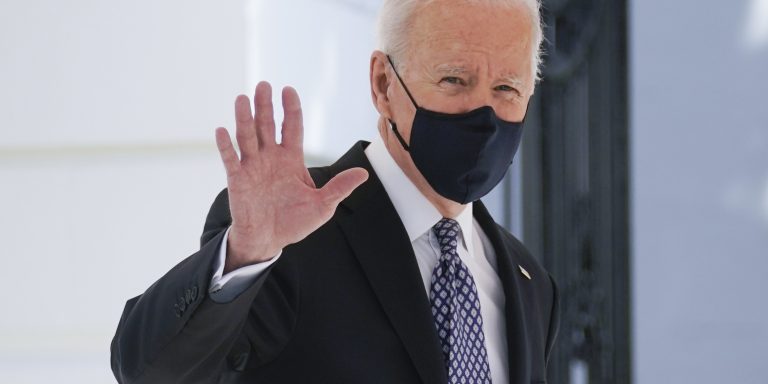INTELBRIEF
March 23, 2021
IntelBrief: Maximum Pressure on Iran Begins to Relax

Bottom Line up Front
- The Biden administration’s offer of diplomacy with Iran has encouraged some entities to increase economic transactions with Iran.
- Despite U.S. warnings that it would enforce penalties for sanctions violations, China is increasing its imports of Iranian oil significantly.
- The International Monetary Fund’s reported movement toward approving an Iranian loan request likely has at least tacit U.S. backing.
- The Biden administration is considering selective releases of Iranian foreign exchange assets as a step toward a return to the 2015 JCPOA.
The Biden administration has articulated an intent to rejoin the 2015 multilateral Iran nuclear agreement, but it has formally kept in place all U.S. sanctions that formed the cornerstone of the Trump administration’s strategy of “maximum pressure” on the Islamic Republic. U.S. diplomats have publicly discussed a process of U.S. and Iranian reciprocal steps that might culminate in a mutual return to full compliance with the nuclear accord. But thus far, Iran has refused a U.S. offer to begin direct diplomacy to establish a roadmap for reviving the nuclear deal. Still, the U.S. policy shift on Iran has apparently been interpreted, intentionally or unintentionally, as a signal to companies, countries and other institutions around the world that there is less risk to them for violating U.S. sanctions than there was during the Trump administration. In addition, the Biden administration appears to be promoting possible opportunities to ease sanctions, in specific instances, in an effort to rebuild Iran’s trust that the United States would adhere to its commitments in a revived agreement.
China has apparently assessed that there is reduced risk in challenging what was a cornerstone of the previous Trump administration’s policy of “maximum pressure” – stringent sanctions on Iranian export of oil. In March 2021, according to assessments of global energy trends, China will import nearly 900,000 barrels of Iranian oil per day. China has remained a consistent buyer of Iranian oil even after the Trump administration re-imposed sanctions in May 2019 designed to drive Iranian oil exports “as close to zero as possible.” However, in order not to attract the actual imposition of U.S. penalties, China’s imports had not exceeded about 300,000 – 400,000 barrels per day until this month. The 900,000 barrels per day level is a clear challenge to the U.S. sanctions architecture, because that level of Chinese imports alone could provide Iran enough revenue ($1.5 billion per month) to stiffen its demands of the United States at the nuclear bargaining table. Biden administration officials have threatened to impose penalties if China continues importing Iranian oil in these high volumes. Still, it is likely that China’s leaders view the U.S. threat as hollow, because imposing sanctions on China’s oil imports from Iran would cause the leadership in Tehran to question the Biden administration’s sincerity in its stated commitment to renewed nuclear diplomacy.
Other reported instances of sanctions relaxation appear to represent the Biden administration’s consideration of stepwise, modest sanctions relief that could be offered as part of a series of U.S. and Iranian steps toward resuming compliance with the 2015 nuclear deal. Officials of the International Monetary Fund (IMF) stated in February that they had begun processing Iran’s May 2020 application for a $5 billion loan to fund COVID-19-related medical imports. The IMF generally operates by consensus of its major board members, and opposition to the loan from the previous U.S. administration had stalled action on Iran’s request. The decision to begin processing this application likely reflects an IMF interpretation that the Biden administration would soon drop opposition to the loan as part of its diplomacy with Tehran.
The United States is reportedly presenting a potential significant relaxation of sanctions as an inducement to Tehran to begin talks on a mutual return to full nuclear agreement compliance. According to press reports in February, the Biden administration is considering providing the necessary sanctions waivers and special licenses that would be required for banks in Iraq, Oman, and South Korea to each release $1 billion of Iran’s Central Bank assets held in those countries. The funds would reportedly be transferred into a special “Swiss Humanitarian Channel” set up during the previous U.S. administration to provide for Iran to purchase food and medical items, but which has only handled a few transactions to date. The possibility of selected asset releases was mentioned in a recent Soufan Center report as one potential confidence-building step that could be taken by the Biden administration. It is clear that countries, institutions, and companies are betting that Iran and the United States will both return to full implementation of the 2015 nuclear agreement in the not too distant future, and are likewise preparing for Iran’s re-entry into the global economy.